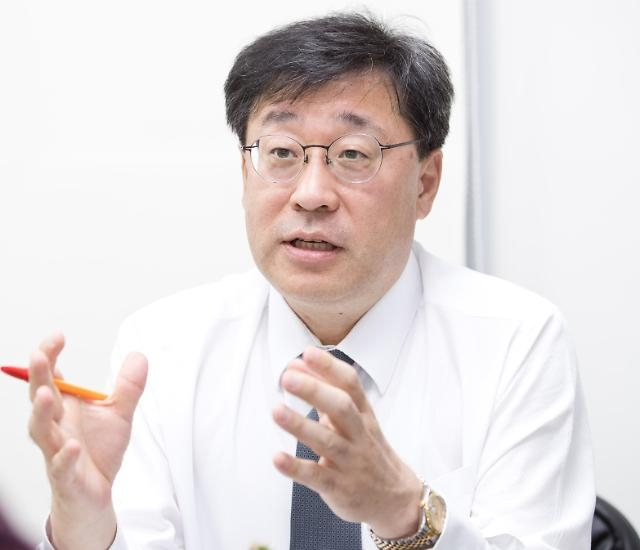Tech, Media & Telecom
Korea to raise tax credits on OTT content for future growth
Govt to unveil support measures for local digital sectors including tax benefits for OTT, more incentives for talent investment
By Sep 23, 2022 (Gmt+09:00)
3
Min read
Most Read
LG Chem to sell water filter business to Glenwood PE for $692 million


Kyobo Life poised to buy Japan’s SBI Group-owned savings bank


KT&G eyes overseas M&A after rejecting activist fund's offer


StockX in merger talks with Naver’s online reseller Kream


Mirae Asset to be named Korea Post’s core real estate fund operator



Studio Dragon Corp., South Korea’s leading drama production house, spent 26 billion won ($18.5 million) on Vincenzo, aired in 2021, and received a tax credit of 750 million won from the government. The spin-off from entertainment giant CJ ENM Co. would have taken 3.4 billion won in the tax benefit if it had made the crime drama series in California.
South Korea plans to raise tax credits on over-the-top (OTT) media content, responding to the local industry’s request for more tax reductions, as the country seeks new growth engines for Asia’s fourth-largest economy.
“Domestic companies have been complaining of difficulties due to a lack of investment capacities although drama production costs surged on global OTT service providers’ aggressive investments,” Second Vice Minister of Science and ICT Park Yun-Kyu told The Korea Economic Daily in an interview on Thursday.
“We will continue to talk to related ministries to raise tax credits.”
It was the first time for a senior government official to mention an increase in tax benefits for OTT investments.
The Ministry of Science and ICT seeks to raise tax credit rates to 5% for large companies, 10% for middle market enterprises and 15% for small and medium-sized enterprises, respectively, from the current 3%, 7% and 10%. Lawmakers were also known to agree with the need for a hike in tax credits.
“The increase is likely to help local OTT companies enhance their competitiveness for the cut-throat competition against global majors,” Park said. “The government aims to boost the growth engine for the Korean content industry through the hike in the tax credit rates.”
NATIONAL SUPPORT FOR DIGITAL SECTORS
The ministry plans to unveil the national digital comprehensive policy soon to support digital industries with measures such as the tax benefit for the OTT sector.
The support package is set to include increasing incentives for corporate investment in manpower, nurturing software as a service (Saas), securing core Metaverse technology and others.
“We will support local companies to obtain global competitiveness and lead the world’s digital order,” Park stresses.
The ministry set the policy direction with the private sectors since the early stage of establishing the strategy,” Park said. “We have reflected the core ideas from the fields in the national tasks.”
The ministry plans to nurture the local cloud and SaaS industries, he said.
“We will spend a budget of 37 billion won next year to aggressively increase SaaS available for major industries and public sectors while helping the global expansion of local SaaS companies.”

The vice minister is one of the busiest officials in the government with endless meetings with industry executives to listen to their ideas and needs.
That resulted in policies to support local companies. The ministry is revising regulations in response to the request of Samsung Electronics Co. to change the radio wave inspection method for semiconductor facilities, and the demand from Hyundai Motor Co. related to the frequency assignment for electric vehicle wireless charging.
REGULATORY SANDBOX
Park is seeking to improve the country’s regulatory sandbox policy that exempts regulations to support the information and communications technology (ICT) industries.
The policy has granted exceptions to 156 cases, created 2,576 jobs and attracted 170.5 billion won in investment, still the government needs to further enhance the policy to support the corporate sectors more, Park said.
“We plan to simplify the sandbox process as the procedure itself was seen as a regulation to some degree,” he said. “It is more important to remove unnecessary regulations to help companies not seek the sandbox.”
Regarding the reform of regulation on the cloud security assurance program (CSAP), which allows foreign cloud service providers to enter the public sector, Park implied that the ministry will reflect concerns among domestic companies.
“We will prepare details in consideration of the impact on the overall industry.”
Write to Jeong-Soo Hwang and Seung-Woo Lee at hjs@hankyung.com
Jongwoo Cheon edited this article.
More to Read
-
 Business & PoliticsTrump Jr. meets Korean business chiefs in back-to-back sessions
Business & PoliticsTrump Jr. meets Korean business chiefs in back-to-back sessionsApr 30, 2025 (Gmt+09:00)
-
 Korean chipmakersSamsung in talks to supply customized HBM4 to Nvidia, Broadcom, Google
Korean chipmakersSamsung in talks to supply customized HBM4 to Nvidia, Broadcom, GoogleApr 30, 2025 (Gmt+09:00)
-
 EnergyLS Cable breaks ground on $681 mn underwater cable plant in Chesapeake
EnergyLS Cable breaks ground on $681 mn underwater cable plant in ChesapeakeApr 29, 2025 (Gmt+09:00)
-
 Business & PoliticsUS tariffs add risk premium to dollar assets: Maurice Obstfeld
Business & PoliticsUS tariffs add risk premium to dollar assets: Maurice ObstfeldApr 29, 2025 (Gmt+09:00)
-

Comment 0
LOG IN


